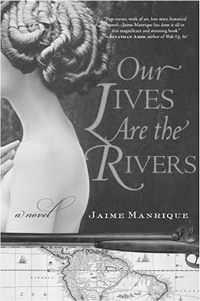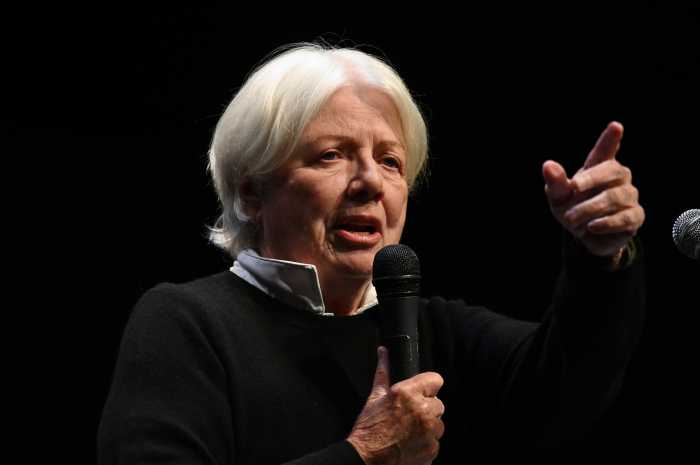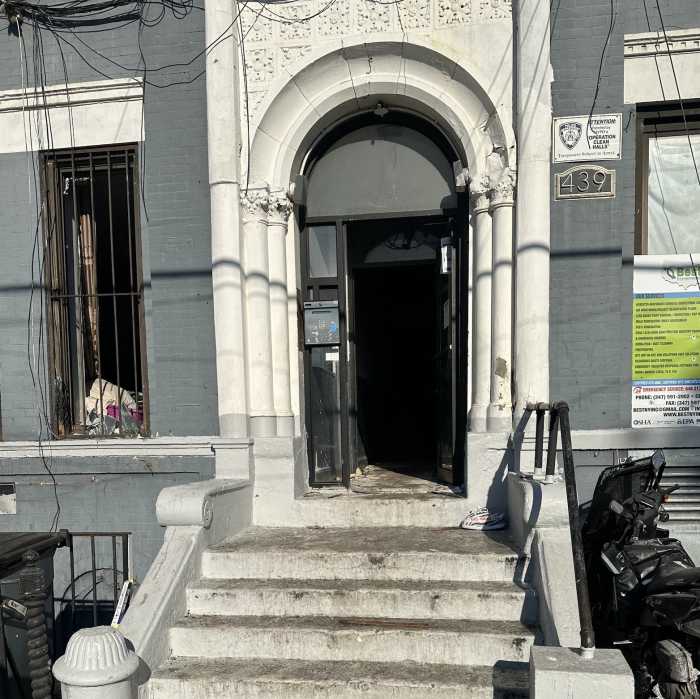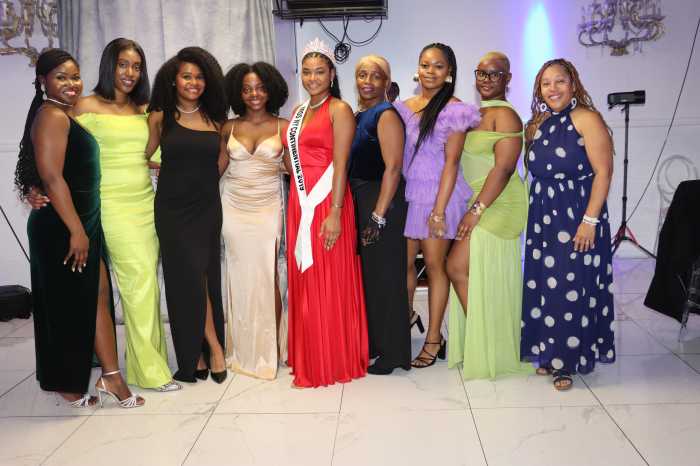Exposing revolving cycles of Latin American subjugation in “Our Lives are the Rivers”
When Islamic aggression was at bay, these often-comic works of “Turkomania” had little edge. In today’s post-9/11, post-Denmark world of hypersensitivities, however, they are once again potentially incendiary.
It is thus almost certain that when “Ghosts” is revived at the Met, the Turkish Embassy scene that ends with Pasha’s turban literally exploding in fireworks will be cut. The plot and libretto of Verdi’s “Nabucco,” about biblical Babylon’s—that is Iraq’s— persecution of the Hebrews, had seemed cartoonish, but when the latter was revived at the Met on the eve of the Iraq war, every word and plot turn had you on the edge of your seat.
In the current Met repertory, there’s another opera that gains resonance from current events and recountings of history—Verdi’s “La Forza del Destino,” in which a Spanish lady from the nobility falls in love with an Incan Prince, both of them eventually destroyed by the poisons of Spanish racism, repressive Catholicism, and colonialism. The current political upheavals in South America certainly shine new light on this history, as does Jaime Manrique’s new epic novel about Simon Bolivar, his mistress and champion Manuela Saenz, and the South American wars of independence from Spain they led.
It’s no coincidence that after reading master storyteller Manrique’s romantic historical novel my thoughts turned to opera; for operatic and cinematic are two adjectives that come immediately to mind. A ferociously ambitious, independent, and passionate woman who rose above her circumstances, Manuela Saenz takes her place alongside such contemporary legends as Evita Peron and Frida Khalo in the hearts and minds of those of us, Latino and non-Latino, who thirst for contemporary knowledge of the vast treasure trove of histories and cultures we call “Latin American.” As news reports of seismic socialist change in Venezuela, Bolivia, and Chile accumulate, as anti-Americanism metastasizes globally, as I continue my work in health care where many of my patients struggle with addiction to cocaine, most of it from Colombia, which also produces the richest of the coffees I imbibe, it is with this hunger for greater understanding that I devoured Manrique’s riveting account of these great figures of legend and lore.
Like most great novelists, Manrique has two goals—to tell the story of real people whose experience and struggles are timeless and universal, and at the same time to reveal the history and configuration of the world about them in time and place. By both measures, “Our Lives Are the Rivers”—a line from the epic poem by Jorge Manrique (who Jaime speculates may be related) about the death of his father—is a success.
La Saenz, the principal subject and voice and soul of this biographical tale, invites comparison with Scarlett O’Hara and other great women of literature, history, and politics who seize the day, albeit with very different sensibilities and loyalties. Through their eyes and experience, we get a decidedly romanticized but also a complex view of the social upheavals, the revolutions, they’re caught up in. Not surprisingly the Bolivar-led revolutions of independence from Spain had its contradictions, to the extent of the irony of Bolivar El Liberador eventually having himself declared dictator, a price that had to be paid in time and place.
As with other wars and revolutions such as the American Revolution and the American Civil War, one must inevitably acknowledge the rightness of the cause, the cause of liberation, however reluctantly in view of the excesses, abuses, and failures of war, the overwhelming losses, the incalculable costs.
“Our Lives” sympathetically revisits the horrors of subjugation, based on difference, especially slavery, classism, sexism, and, for Manuela, “illegitimacy” of birth, the stuff of revolutions past and present—struggles for independence that inevitably reconfigure and reestablish hegemony. Those on top are toppled only to be replaced by a new cadre of those on top. Which is not to say that revolutions are never justified so much as to point out that they inevitably become corrupted by the same disease—abuse of power—they fought to end. Was the French Revolution justified? Was the Islamic revolution that overthrew the Shah of Iran? The Crusades?
As Manuela herself comes to experience again and again and finally to realize, the struggle for independence from Spain to which she devoted her life, for which she sacrificed her life to the extent that the issue of the motherhood she was never to experience never even emerges—neither she nor her beloved Bolivar was ever known to have children—to the extent of dying in poverty, was very far from the romantic ideals of her youth and passion.
You don’t have to be woman or a gay man to write a novel about a woman, as Arthur Golden recently demonstrated with his “Memoirs of a Geisha.” But in Manrique’s case knowing he is gay does add to the richness. In his meticulous chronicling of the feelings and conflicts of La Saenz, who was “illegitimate” and of “mixed blood” as well as a solider and military strategizer, who crossed-dressed and smoked cigars, it’s delicious to contemplate the levels of identification between the author—who is gay and likewise of “mixed blood,” but whom to my knowledge does not cross-dress nor smoke cigars but whose adeptness with a fan in the summer can seem more subcultural than cultural—and his subject’s constant struggles against conservative, entrenched familial, social, legal, and military expectations of who she should be and how she should behave.
Manrique’s personal identification here is palpable, but less even with the struggles against sexism and machismo than with those against racism. As he has acknowledged, his maternal grandmother was a black woman and he has over time become more interested in exploring that aspect of his heritage. Meanwhile, he has become increasingly aware that the wars of independence that freed the criollos, the South American descendents of the Spaniards such as Manuela, have yet to undo the oppression of the Indians and Africans.
“The nations of the Andes are still openly racist,” Manrique has observed. “The most insulting thing you can say to another person is to call him an Indian. With the exception of singers, boxers, soccer and baseball stars, blacks remain invisible and powerless in much of Latin America.”
It is this sensitivity that informs Manrique’s most inspired device—of having much of the action unfold through the eyes of Manuela’s two slaves, Natan and Jonotas, who she eventually freed but who stayed with her as her closest friends and real family throughout her life.
“Look at the uproar caused recently by the Indian President of Bolivia. Peru has an Indian president. And Chavez, in Venezuela, is a black man,” observed Manrique in the press release for the book. “This will be one of the great social changes we will see in the twenty-first century.”
“Viva la Revolucion,” one can’t help but join in. But if the history of the revolutions of independence of Latin America otherwise so romantically captured by Manrique are any indication, it’s difficult to imagine that the latter-day revolutions of Fidel Castro and his protégé Hugo Chavez won’t succeed at the price of a lot more demonizing and subjugating—the very characteristics, real and exaggerated, of the systems they aim to displace. Plus ca change…?
gaycitynews.com



































